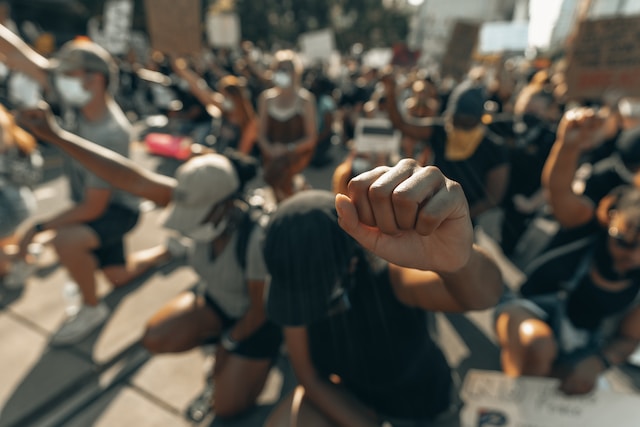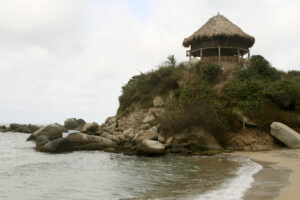Belize is a constitutional parliamentary democracy where residents aged 18 or over vote directly for 31 representatives to sit in its House of Representatives through universal adult suffrage.
A Governor General represents Queen Elizabeth in Parliament. They give assent to any Bill passed by both houses of parliament that become Law, before passing them back through for further consideration by magistrate courts within each district.
Belize Head of State
The Constitution of Belize specifies that Queen Elizabeth II is represented as chief of state by a governor-general who must be a citizen. The governor-general delegates executive authority based on advice from Prime Minister and Cabinet, making the monarchy more symbolic in nature. Executive power rests primarily with Cabinet.
The National Assembly is the legislative branch of the Belizean national government, consisting of both Senate and House of Representatives members. According to Chapter Six of its constitution, it “makes laws for the peace, order and good government of Belize“. Laws made by this bicameral legislature must first receive approval by both houses before being assented to by Governor General before going into effect.
National Assembly members elect a Speaker, who along with the Prime Minister and leader of the Opposition forms the governing team. Its term typically lasts five years unless it is disbanded earlier; 12 senators appointed by the governor-general are appointed for five year terms, and 31 seats of House of Representatives members are elected directly from single-member constituencies.
An independent Public Services Commission oversees all aspects of public sector activity in Belize, such as the police force and military. The chairman and 18 other members (not counting the presiding officer) are appointed by the governor-general upon the advice of the prime minister and consultation with the leader of the opposition; furthermore he/she can appoint ex officio members from National Assembly or public offices who hold public offices to serve on commission.
The private sector in Belize is strong and dynamic, led by banking industry activity. Furthermore, many nongovernmental organizations work towards various social issues related to children and elderly welfare, women’s rights, health care delivery and education. There are also trade unions, credit and savings cooperatives and other forms of business ownership which exist – though allegations of cronyism exist regarding license and contract allocation processes.
Legislative Branch
Government functions through the National Assembly. House of Representatives members are popularly elected for five-year terms to introduce legislation affecting Belize’s development; Senate members are appointed by the governor general and they debate and approve bills passed by House; in turn, Senate elects its presiding officer. Individuals seeking election or appointment to either chamber must be Belizeans who have resided here at least a year prior to becoming elected or appointed, are not currently serving in military or police forces, nor ever had held public office before.
Belize has two major political parties: the center-left People’s United Party and center-right United Democratic Party, with smaller parties occasionally running candidates but rarely winning seats or offices. According to its constitution and law, arrest and detention must not be arbitrary or without legal justification; individuals can challenge their arrest before court if needed; however media reports indicate that Belize City authorities occasionally disregard these requirements; for example in July 2019, they declared a 30-day state of emergency against gang violence which allowed police and the Belize Defence Force to conduct house raids as well as target criminal gang leaders without usual due process rights due process rights rights protections.
Economically, commercial logging and agriculture are major sources of employment; logging typically entails mahogany and rosewood species while sugar and citrus production also play a significant role. Furthermore, the country is an attractive tourist destination.
Belize’s independent judiciary operates under a common law system and Section 94 of its constitution establishes a Supreme Court of Judicature comprised of a Chief Justice and two Puisne Judges as well as an appeal Court with appellate jurisdiction over the High Court. In 2016, Belize’s Supreme Court struck down an article of the penal code outlawing same-sex sexual activity; further, reports indicate there are few official restrictions or protections against discrimination on sexual grounds.
Belize Executive Branch
Belize’s primary governing body is the National Assembly (Parliament). According to Belize’s constitution, elected House of Representatives members hold real political power as policy-makers within this body. Furthermore, this National Assembly comprises two Houses: the Senate and the House of Representatives. The House of Representatives comprises 31 seats elected through single-member constituencies, elected in one-off elections held every five years. Members elect a Speaker, officers and Cabinet from among themselves as part of this legislative body. The prime minister and cabinet serve at the pleasure of Queen Elizabeth but are not bound by a fixed term contract. While King William VIII remains as titular head of state, the governor general performs ceremonial duties on her behalf while consulting with Prime Minister and Cabinet for executive authority.
The Constitution prohibits arbitrary arrest and detention, providing an avenue to contest its legality in court; however, sometimes government fails to abide by these requirements. Furthermore, laws provide for the presumption of innocence as well as rights such as being informed about criminal charges brought against oneself, having their hearing in an independent and impartial court within an appropriate amount of time, and being free of self-incrimination or double jeopardy.
But the Belizean legal system still has some shortcomings, such as poor monitoring of police practices and an appearance of foreign influences influencing court proceedings. Furthermore, government and business leaders have complained that favoritism plays a part in decisions regarding licenses and public contracts awarded, as well as certain people not receiving justice because of race or sexual orientation.
Belize provides its citizens with an impressive social services system, including education and health care, that are readily available to most citizens. Infant mortality rates are low and access to water, sanitation systems and disease control measures is generally reliable. Unfortunately, however, many Belizeans live in poverty; their main source of livelihood is subsistence farming.
Constitution and laws guarantee freedom of religion, expression, and assembly; however religious intolerance remains an issue and discrimination against LGBT+ people is rampant. In 2016, the Supreme Court struck down an antidiscrimination provision of criminal code that banned same-sex sexual activity before accepting a judgment that constitutional freedoms and antidiscrimination protections extend to sexual orientation as an important aspect of freedoms guaranteed under antidiscrimination protections.
Local Government
Belize operates as a parliamentary constitutional democracy with universal, but non-compulsory, suffrage for adults over 18. An elected prime minister heads up government affairs while there are two major political parties: United Democratic Party (UDP) and People’s United Party (PUP). Political violence is rarely encountered here.
Local governments operate in three main forms: city councils, town boards and village councils. City and town councils hold authority for most municipal issues and are funded primarily through property taxes but can also generate revenues through fines, license fees and permits. Village councils on the other hand delegate decision-making to committees elected by at least 200 voters; some villages still elect traditional community-elected leaders such as alcaldes with limited powers of authority.
While many Belizeans live in rural communities, the urban population has expanded quickly over time. Unfortunately, this rapid expansion has coincided with higher poverty and housing vulnerability rates; city dwellers often reside in informal settlements without basic infrastructure that increase flood risks during rainy season.
The national government is taking steps to meet some of these challenges by investing in infrastructure and improving urban governance. As part of its municipal development project, they have implemented measures designed to enhance municipal infrastructure and management; improve governance and transparency in the public sector; lower vulnerability to natural disasters; and foster social inclusion. Anecdotal evidence suggests that areas where investments have been made by this project have greater resilience to extreme climatic events like hurricanes. Furthermore, the government is working to address inequality by advocating equality and non-discrimination legislation. In 2016, Belize’s Supreme Court overturned a provision of its criminal code prohibiting same-sex sexual activity and, more recently, in 2019, courts determined that LGBT individuals are protected under freedom of expression and anti-discrimination law. As a result of these rulings, legislation to ensure these rights is being developed by the government; additionally, Belize boasts a strong and active civil society with numerous nongovernmental organizations (NGOs) focused on social services, the environment, human rights issues as well as indigenous and women’s issues.




